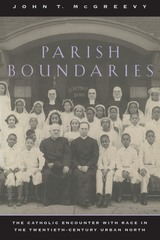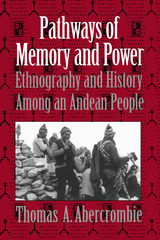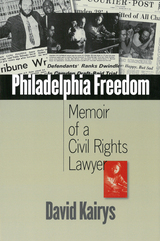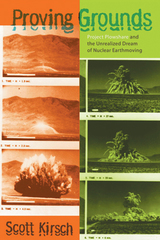8 start with P start with P

"Parish Boundaries can take its place in the front ranks of the literature of urban race relations."—Jonathan Dorfman, Washington Post Book Review
"A prodigiously researched, gracefully written book distinguished especially by its seamless treatment of social and intellectual history."—Robert Orsi, American Historical Review
"Parish Boundaries will fascinate historians and anyone interested in the historic connection between parish and race."—Ed Marciniak, Chicago Tribune
"The history that remains to be written will rest on the firm foundation of Mr. McGreevy's remarkable book."—Richard Wightman Fox, New York Times Book Review

Making clear the early and deep intermingling of practices and world views among Spaniards and Andeans, Christians and non-Christians, Abercrombie critiques both the romanticist tendency to regard Andean culture as still separate from and resistant to European influences, and the melodramatic view that all indigenous practices have been obliterated by colonial and national elites. He challenges prejudices that, from colonial days to the present, have seen Andean historical knowledge only in mythic narratives or narratives of personal experience. Bringing an ethnographer’s approach to historiography, he shows how complex Andean rituals that hybridize European and indigenous traditions—such as libation dedications and llama sacrifices held on saints’ day festivals—are in fact potent evidence of social memory in the community.

"David Kairys is one of the grand long-distance runners in the struggle for justice in America. His brilliant legal mind and superb lawyerly skills are legendary. This marvelous book is his gift to us!"
---Cornel West, Professor of Religion and African American Studies, Princeton University, and award-winning author of Race Matters
Philadelphia Freedom is the spellbinding tale of an idealistic young lawyer coming of age in the political cauldron of the 1960s and 1970s. From his immersion in the civil rights movement to his determined court battles to quell criminal violence by Philadelphia police, Kairys recounts how he helped make history in the city of brotherly love."
---William K. Marimow, Editor and Executive Vice President, Philadelphia Inquirer, and recipient of two Pulitzer Prizes
"In the current climate of political deception and the trampling of our civil rights, Kairys's compelling book is a clenched fist, a prayer for social justice and a call to conscience."
---Steve Lopez, Los Angeles Times columnist and former Philadelphia Inquirer columnist
"With engaging, insider stories of innovative legal strategies of a truly creative lawyer, this book evokes the ebullient spirit of progressive social change launched in the 1960s and should be read by aspiring and practicing lawyers as well as anyone interested in American social history. Philadelphia Freedom reads like a suspense novel and reveals how novel legal and political thinking can and does make a real difference to individuals and to the quality of justice."
---Martha L. Minow, Jeremiah Smith, Jr. Professor of Law, Harvard University
"David Kairys's compelling book properly explains the vital role that civil rights attorneys play in our system of justice."
---Judge John E. Jones III, United States District Court for the Middle District of Pennsylvania, and presiding judge in the landmark Kitzmiller v. Dover Area School District case
A memoir that is also a compelling page-turner, Philadelphia Freedom is the poignant, informative, often inspiring account of renowned civil-rights lawyer David Kairys's personal quest for achieving social justice during the turbulent 1960s and 70s.
Philadelphia Freedom brings us intimately and directly into Kairys's burgeoning law career and the struggles of the 60s as his professional and private life navigated the turmoil and promise of the civil rights and antiwar movements.
Many of the cases Kairys took on involved discrimination and equal protection, freedom of speech, and government malfeasance. Kairys is perhaps most well known for his victory in the Camden 28 draft board case, in which the FBI set up a sting of the Catholic anti-war left at the behest of the highest levels of government.
The stories and cases range from nationally important and recognizable---the family of the scientist the CIA unwittingly gave LSD in the 1950s; the leading race discrimination case against the FBI; Dr. Benjamin Spock's First Amendment case before the Supreme Court; the city handgun lawsuits Kairys conceived---to those he encountered in his early work as a public defender. The characters include public figures such as FBI Directors J. Edgar Hoover and Louis Freeh; CIA Director William Colby; Pennsylvania Senator Arlen Specter; New York Attorney General Eliot Spitzer; U.S. Attorneys General Edward Levi and John Mitchell; Georgia Governor Lester Maddox; Pennsylvania Governor, former Philadelphia Mayor, and Democratic National Committee chair Ed Rendell; Philadelphia Mayor and Police Commissioner Frank Rizzo. But some of the most memorable are not well known, involving regular people caught up in the often heartless machinery of the courts and legal system.
Though it reads like a novel, with all the elements of character, plot, and suspense, Philadelphia Freedom also has historical significance as a firsthand account of the 1960s and 70s and contains social commentary about race as well as insights and major perspectives on the nature and social role of law.
David Kairys is Professor of Law at Beasley School of Law, Temple University. He was a full-time civil rights lawyer from 1968 to 1990.

Alaska has always attracted people from varied backgrounds. In A Place of Belonging, Phyllis Movius introduces us to five women who settled in Fairbanks between 1903 and 1923 and who typify the disparate population that has long enriched Alaska. The women’s daily lives and personal stories are woven together in these biographical portraits, drawn from the women’s letters, memoirs, personal papers, club records, their own oral histories and published writings. Enriched by many never-before-published historical photos, Movius’s research gives us a unique inroad into life on the frontier.

This volume considers the significance of stone monuments in Preclassic Mesoamerica, focusing on the period following the precocious appearance of monumental sculpture at the Olmec site of San Lorenzo and preceding the rise of the Classic polities in the Maya region and Central Mexico.
By quite literally “placing” sculptures in their cultural, historical, social, political, religious, and cognitive contexts, the seventeen contributors utilize archaeological and art historical methods to understand the origins, growth, and spread of civilization in Middle America. They present abundant new data and new ways of thinking about sculpture and society in Preclassic Mesoamerica, and call into question the traditional dividing line between Preclassic and Classic cultures. They offer not only a fruitful way of rethinking the beginnings of civilization in Mesoamerica, but provide a series of detailed discussions concerning how these beginnings were dynamically visualized through sculptural programming during the Preclassic period.

The indigenous people of the hemisphere have resisted a five-hundred-year assault, fighting to maintain their cultural identities. During this time, authorities in the Americas have insisted that the toleration of indigenous societies and cultures would undermine their respective states. In recent years, however, the nations of the Americas have started to reverse themselves. They are altering their constitutions and proclaiming themselves multiethnic. Why is this happening now? The Politics of Ethnicity: Indigenous Peoples in Latin American States, edited by David Maybury-Lewis, helps us understand the reasons and history behind these times of transition.
The book provides a valuable overview of current problems facing indigenous peoples in their relation with national states in Latin America, from the highlands of Mexico to the jungles of Brazil. The traditional, sometimes centuries old, relations between states and indigenous peoples are now changing and being rediscussed. The collection, authored by U.S. and Latin American anthropologists using interdisciplinary approaches, enables the reader to understand these recent developments in a comparative framework. An ambitious and quite thorough collection, it is brought together skillfully by one of the discipline’s maître penseurs.

With contributions by Paul Bloom, Helen Sorayya Carr, Edward S. Deevey, Jr., Nancy L. Hamblin, S. E. Garrett-Jones, Hattula Moholy-Nagy, Mary Pohl, Amadeo M. Rea, Don S. Rice, Prudence M. Rice, Julie Stein, B. L. Turner II, Hague H. Vaughan, Richard R. Wilk, Frederick Matthew Wiseman
This volume provides data from interdisciplinary projects produced over the past fifteen years, including palynology, limnology, geography, soil science, faunal analysis, ethnology, and ethnohistory. Centering on differences of opinion rather than on a synthesis of data, this analysis of the methods and theoretical principles by which specialists work yields a unique view of archaeological procedures.

Although unthinkable by today’s standards, the U.S. Atomic Energy Commission spent hundreds of millions of dollars between 1957 and 1974 studying the feasibility of using nuclear explosions for so-called “peaceful” purposes under a program called Project Plowshare. Nuclear earthmoving, promoted by the famed physicist, defense strategist, and anticommunist Edward Teller, was the most notorious of Plowshare’s experimental programs. Teller and his colleagues proposed using nuclear explosions to build canals, dig harbors, and create dams and quarries. Such “constructive” uses of atomic weaponry, they believed, would help defuse Americans’ fears about radioactive fallout and nuclear testing and would encourage continued support for nuclear research programs.
In Proving Grounds, Scott Kirsch traces the rise and fall of this astonishing cold war initiative. He examines the work that went into making “geographical engineering” or “earthmoving” an imminent possibility as well as the public controversy, scientific uncertainty, and political opposition that kept it—with the exception of several massive craters in the Nevada desert—out of the landscape.
On one level, Kirsch demonstrates how the history of Project Plowshare was shaped by the specific issues and sentiments that influenced American nuclear and environmental policy during the 1950s and 1960s. But Kirsch also argues that the lessons learned from this case continue to hold relevance today. By exploring key issues of science and risk, Proving Grounds warns that knowledge production and environmental politics are still very much intimately, and dangerously, related.
READERS
Browse our collection.
PUBLISHERS
See BiblioVault's publisher services.
STUDENT SERVICES
Files for college accessibility offices.
UChicago Accessibility Resources
home | accessibility | search | about | contact us
BiblioVault ® 2001 - 2024
The University of Chicago Press









